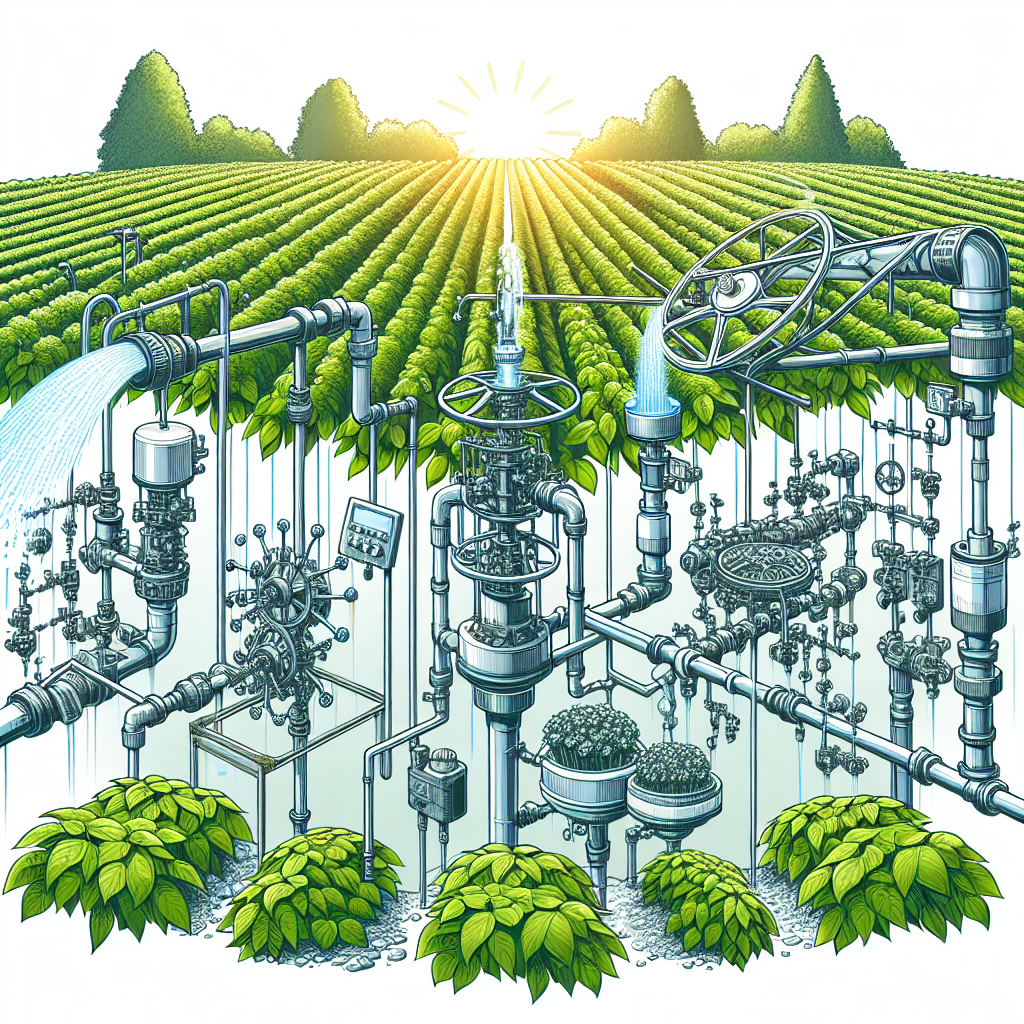Efficient Irrigation Systems for Happy Plants
Introduction
Efficient irrigation is crucial for the optimal growth and health of plants. Without proper watering, plants can easily become stressed or wilt, leading to poor growth and reduced yields. In this article, we will discuss the importance of efficient irrigation systems for maintaining happy and healthy plants. We will explore various irrigation techniques and systems that can help ensure plants receive the right amount of water at the right time.
Importance of Efficient Irrigation
Water is essential for plant growth as it plays a vital role in photosynthesis, nutrient uptake, and overall plant health. However, too much or too little water can have negative effects on plants. Overwatering can lead to root rot and other water-related diseases, while underwatering can cause wilting and stunted growth.
Efficient irrigation not only helps conserve water but also ensures that plants receive the right amount of moisture they need to thrive. By utilizing efficient irrigation systems, gardeners can prevent water wastage and promote healthier plant development.
Types of Irrigation Systems
There are several types of irrigation systems available that are designed to provide efficient watering for plants:
1. Drip Irrigation: Drip irrigation is a highly efficient system that delivers water directly to the base of each plant through a network of tubes or pipes with emitters. This method reduces water waste by minimizing evaporation and runoff. Drip irrigation is ideal for gardens with rows of crops or individual plants.
2. Sprinkler Irrigation: Sprinkler irrigation involves using a system of sprinklers to evenly distribute water over a large area. This method is commonly used in large agricultural fields or lawns where uniform coverage is needed.
3. Soaker Hoses: Soaker hoses are porous tubes that release water slowly along their length, allowing for deep root penetration without wastage. These hoses are ideal for watering flower beds, vegetable gardens, and landscaped areas.
4. Automated Irrigation Systems: Automated irrigation systems use timers or sensors to control watering schedules based on specific plant needs and weather conditions. These systems can be programmed to deliver precise amounts of water at designated times, ensuring plants receive adequate moisture without overwatering.
Tips for Efficient Watering
In addition to using efficient irrigation systems, there are several tips gardeners can follow to ensure optimal watering practices:
1. Water in the Morning: Watering plants early in the morning allows moisture to penetrate deeply into the soil before evaporation occurs during the heat of the day.
2. Water at the Base: When watering plants, aim to deliver water directly to the base of each plant rather than overhead where much of it may be lost through evaporation or runoff.
3. Mulch: Applying mulch around plantings helps retain soil moisture by reducing evaporation and weed growth.
4. Monitor Soil Moisture: Regularly check soil moisture levels by inserting a finger into the soil near plant roots. If the soil feels dry, it’s time to water; if it feels moist, hold off on watering until it dries out.
Conclusion
Efficient irrigation systems are essential for maintaining happy and healthy plants by providing them with adequate moisture without wastage. By choosing the right irrigation system and following best practices such as proper timing and placement of watering, gardeners can ensure their plants thrive throughout the growing season. With advances in technology and automation, managing water usage has become easier than ever before, allowing gardeners to conserve resources while promoting healthier plant growth.
By implementing efficient watering practices in your garden or landscape, you can create an environment where your plants will flourish and bring you joy through their beauty and productivity.














